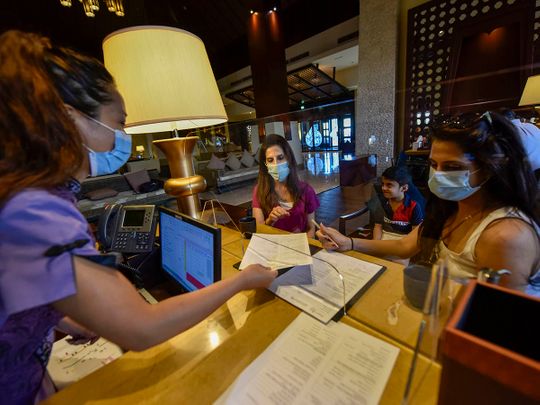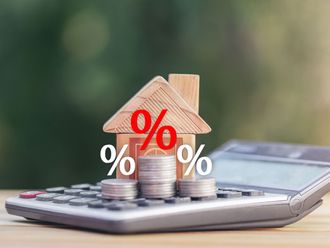
Dubai: ‘Contactless’ payment methods have already won mass acceptance as consumers look to the safest options to cope in a COVID-19 infested world. As more contactless options show up, will this be a game changer for the hospitality and property management industry as well?
According to Harsh Mehta at the US-headquartered hospitality services company Sonder, contactless dealings is already a factor in the industry. Or, as he says, “as far as guests want”.
The extent to which the services remain contactless depends on a country’s regulations and guest demands. “In Dubai, ID verification is done in-person in accordance with local regulations,” said Mehta, who is Sonder’s Vice President for the EMEA markets. “Therefore, our hospitality teams are present to greet guests at check-in and help them get settled. This is the only obligatory point of contact.”
Rules of engagement
Going forward, such contactless interactions could well be the norm rather than another safety precaution taken now against possible COVID-19 infections. Even when the pandemic gets consigned to history, its legacy will still be apparent for years to come, whether at the workplace or any other point outside of the home.
In the hospitality space, these could define the guest experience, as much as a nice room and a great view. “You either go to an Airbnb and there aren't huge amounts of consistency in the experience you get,” said Mehta. “Sometimes, you got a great experience and sometimes you don't. Your second choice is a range of hotels to choose from, and if you want a tech-enabled experience, you pay for it.
“When a guest asks if they can check out two hours later, we respond quickly on our app. That's where our technology platform comes into play as the app that provides the guest services is tightly integrated with the operational backend.” In this scenario, a connection with the backend would display the availability of rooms to the hotel staff, who can then take quick decisions accordingly.
Still reeling from the drop in guest numbers, hotels have stepped up on the innovation with robot concierges that can read emotions like Hilton’s Connie, and Boston Yotel’s robot Vi-YO-Let, which rains UV lights to kill viruses and bacteria - and including the coronavirus.
Retrofit
Even existing properties can be revamped so that the tech can be deployed to meet contactless needs. “We work closely with the landlords, we lease the building and refurbish them” to optimise the design and use technology to run operations on a day-to-day basis.
For property owners, shifting to a contactless approach can be costly, especially if they plan to turn to sophisticated apps that can open locks remotely and control room temperature.
But Mehta says: “We work in a way that is economically beneficial for our partners. When you develop a building, it usually takes a year or two to lease the building. We help our partners lease almost instantly. We started with Al Fattan Group in Dubai in 2019 and have 164 units with them and, now, we signed a deal for 300 more.”
Several applications have surfaced in the market that aid businesses in their transition. Amazon’s Alexa with its voice assistance is a typical feature that homeowners and businesses have adopted to regulate appliances with ease. Lynx is a software platform that helps businesses set up keyless transactions, thermostats and generate digital keys. Operto offer services to businesses to set up sensor-enabled smart technology, with packages ranging from $15 per unit.








